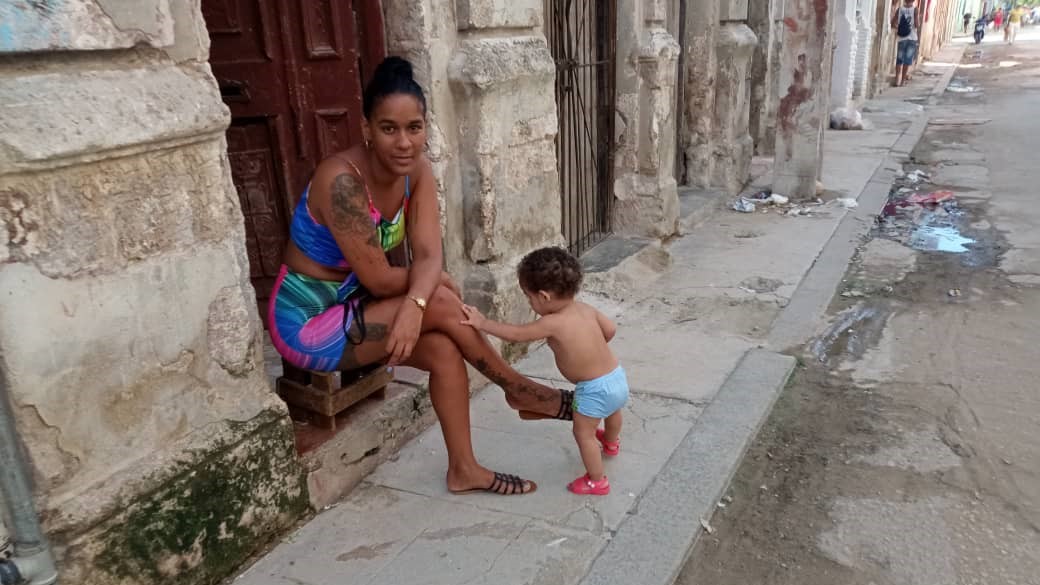The economic and social crisis that Cuba suffers hinders Cuban women's participation in political life. The critical situation as regards food, access to health services, and VAW, place the women of the island before the dilemma of supporting a family, raising children, or making their way in the country's politics
In the study Gender Equality and Women's Political Participation in Cuba: Challenges and Hidden Realities, the Cubadata project found that inequalities in access to health care, food shortages, high prices, and Violence Against Women have a negative impact on women's political participation.
Women in Cuba have limited access to political information and less confidence in their abilities in this area, aggravated by a lack of social support and the prevalence of political coercion, according to the study, based on the results of the report Politics, rights and quality of life in Cuba. The first multidimensional panel 2022 and the various surveys carried out by Cubadata between 2022 and 2023.
The report highlights that women in Cuba doubt their ability to influence the country's reality, which the study's author, academic Aristides A. Vara-Horna, attributes in part to "the underrepresentation of women in political spaces."
Although in the National Assembly of Popular Power women represent 55.7% of the deputies, they do not have real power. According to official statistics from the Cuban Observatory on Gender Equality, women make up just 18.5% of ministry heads. There is a clear gender gap among the highest decision-making positions on the Council of Ministers.
In this same regard, the study suggests that limited access to political information, due to domestic responsibilities borne disproportionately by women, can restrict their knowledge and understanding of politics and, therefore, their ability to participate fully.
Moreover, in times of food shortages, women, especially mothers and caregivers of other family members, can be disproportionately affected. It is a situation that can deplete or drastically reduce the time and energy that women would devote to political participation.
According to the study, higher rates of physical and emotional illness among Cuban women suggest that they may be facing greater health challenges. Sickness disabilities and deteriorating health, in general, can restrict women's ability to participate fully in public life, including politics.
Cubadata's study reveals that women are more likely to protest on humanitarian than political grounds. According to the author, this may reflect poverty or precariousness, and may also indicate their commitment to social welfare and human rights issues.
Regarding the effectiveness of the protests and their ability to generate political change, Cuban women are more pessimistic than men: while 47.7% of men believe that protests can change many things, only 36.3% of women do.
Of the more than 1,000 political prisoners from the historic anti-government protests on July 11, 2021, the opposition platform Justicia 11J registered 87 female political prisoners, whose sentences range up to 15 years of imprisonment.
In demonstrations before and after 11J, mothers who suffer due to their children's living conditions came out to demand the authorities be held responsible for specific issues, such as blackouts, shortages of water and gas, and homelessness. Common forms of protest were to stand in the street or in front of municipal government buildings, or to occupy state premises.
Food shortages and political coercion
42.8% of women surveyed by Cubadata reported that the variety of food at their homes has suffered, in contrast to 32.1% of men. 22.7% of women reported that they run out of food, either because they cannot afford it or they cannot find it, while only 8.8% of men report this situation.
Women who suffer from a more severe lack of food tend to be more employed in tourism-related service jobs and other informal ones than other better-off women, and even more so than men. This could indicate that women are pushed into more precarious or unstable jobs due to an absence of food security.
In terms of political coercion, women in Cuba report higher levels than men, including pressure to vote a certain way and promises of perks or benefits.
Sexual violence, one of the most extreme forms of VAW, seems to be used as a coercive mechanism to obtain food; an alarming 25.3% of the women asked reported being sexually coerced in exchange for food every day.
According to Cubadata's study, the current scenario reveals a pattern of political manipulation that could make women's participation more difficult, eroding their autonomy and ability to fully exercise their political rights.
More than 60 years after the triumph of a revolution that promised them emancipation and equality, Cuban women are trapped in a sexist society that reduces them to traditional roles, with a government whose propaganda takes credit for what they have achieved, failed economic policies, and a regime that persecutes dissidents and muzzles much of the criticism related to gender issues.
Cuban women continue to lack effective representation, unable to organize freely to demand their rights and share their proposals without being persecuted and criminalized, as is currently the case with independent feminist platforms.

Lack of housing makes it difficult for Cubans to incorporate into nuclear families.